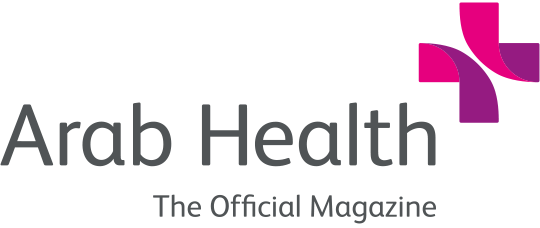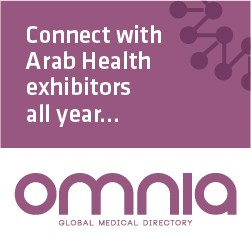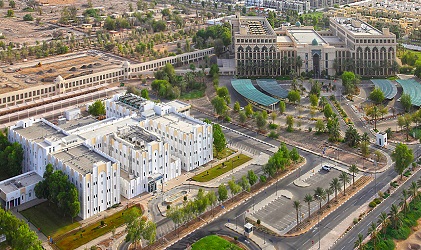
Collaborative Advantage: International hospital alliances in the GCC
Jeremy Panacheril, Partner, Healthcare and Life Sciences Transaction Advisory Services, EY, offers insight into the alliances between local or regional hospital providers and internationally recognised healthcare brands and operators that are becoming a mainstay in the way healthcare facilities across the GCC are run today.
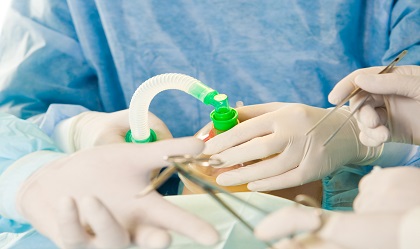
Inculcating a positive safety culture at the Patient Safety Conference and Exhibition
As the premier event for patient and medical safety in the region, more than 600 healthcare professionals and industry leaders will attend the 13th edition of the Patient Safety Conference and Exhibition to be held in Dubai, UAE, to take advantage of the opportunity to network and share best practices with other renowned champions of patient safety.

Healthcare built: a unique environment with unique infection control considerations
Elias Tannous, Infection Control Specialist, Cleveland Clinic Abu Dhabi, Abu Dhabi, UAE outlines the effect of the design and the environment of care on patient safety, the infection control considerations during construction/renovation and also delves into the benefits of adopting the Infection Control Risk Assessment (ICRA).
The ‘hidden’ microbial challenge for healthcare environmental hygiene and its impact on patient safety
Michael Rollins, Consultant Environmental Infection Prevention Specialist, UK delves into the need for investment in hygiene education, competency based technical training and rapid audit tools as hospital cleanliness and sub-optimal cleaning performance and frequency of cleaning has been linked with the incidence of healthcare associated infections.
Working toward keeping CT radiation doses as low as reasonably achievable
Dr Entesar Zawam Dalah, Assistant Professor, Medical Diagnostic Imaging Department, College of Health and Science, University of Sharjah, UAE describes how although CT is indispensable in the medical diagnostic field, there is an imperative need to work toward a safer environment for patients by keeping CT radiation doses as low as reasonably achievable.

Molecular epidemiology of methicillin resistant Staphylococcus aureus: Emerging trends in the Arabian Gulf region
Dr Abiola Senok, Associate Professor, Microbiology and Infectious Diseases, Department of Basic Science, College of Medicine, Mohammed Bin Rashid University of Medicine and Health Sciences, Dubai, looks at the early days of MRSA emergence worldwide and describes how MRSA colonisation and infections that are prevalent with CA-MRSA strains are contributing significantly to the burden of MRSA infections in the Arabian Gulf region.
Personalised Medicine: A Hope for Diabetes
The success of personalised medicine, otherwise called stratified or precision medicine, has been well documented in the treatment of certain diseases. In the case of cancer, the disease will have its own genetic makeup which will vary from individual to individual and knowing the genetic makeup of the disease could lead to individualised drug treatment plans that could reduce the risk of surgery.
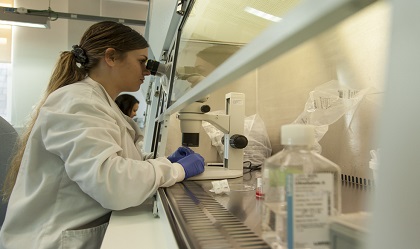
Moving towards truly personalised care
Personalised medicine represents the next generation of medicine and healthcare research. While the idea of personalised medicine is not new, emerging developments in genomics are expected to create a paradigm shift in how patients experience their healthcare journey.

The GCC Demographic Shift
The Gulf Cooperation Council (GCC) has one of the fastest-growing populations in the world. With the GCC population estimated to reach 53.5 million in 2020 - a 30% increase from 2000 – and with the majority of these peoples living in the region’s cities, healthcare spending is also expected to increase to keep up with the growing pressure on the social infrastructure and changing healthcare demands.

Top 4 Reforms to Transform Private Sector Health Facilities in the GCC
The past decade in the Gulf Cooperation Council (GCC) has witnessed significant investment by both government and private sector investors to build new hospitals and clinics, and to improve the health infrastructure.

New bugs, old drugs: Addressing the rising incidence of superbugs
The damaging effects of antimicrobial resistance are already manifesting themselves across the world. Antimicrobial-resistant infections currently claim at least 50,000 lives each year across Europe and the US alone, with many hundreds of thousands more dying in other areas of the world. It is no surprise, therefore, that antimicrobial resistance accounts for 700,000 deaths worldwide – rivalling the number of deaths caused by traffic accidents (1.2 million).

Where Healthcare Laundry and Infection Prevention Meet
Remember learning intersection safety in driver’s ed? We were warned that intersections could be dangerous because they’re where vehicles, pedestrians, runners and cyclists are converging in the same space. We were told that about 20 percent of all crashes happen at intersections. We learned that – whether it’s one without a signal, one with signals, or one with a roundabout – it is important to understand how to navigate an intersection safely and under many different conditions.

